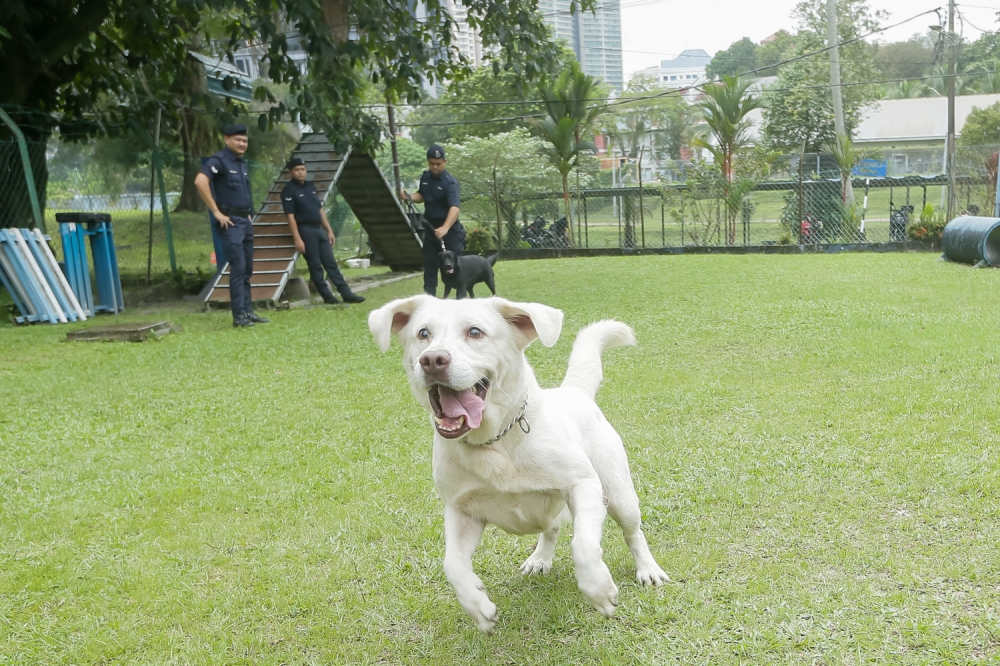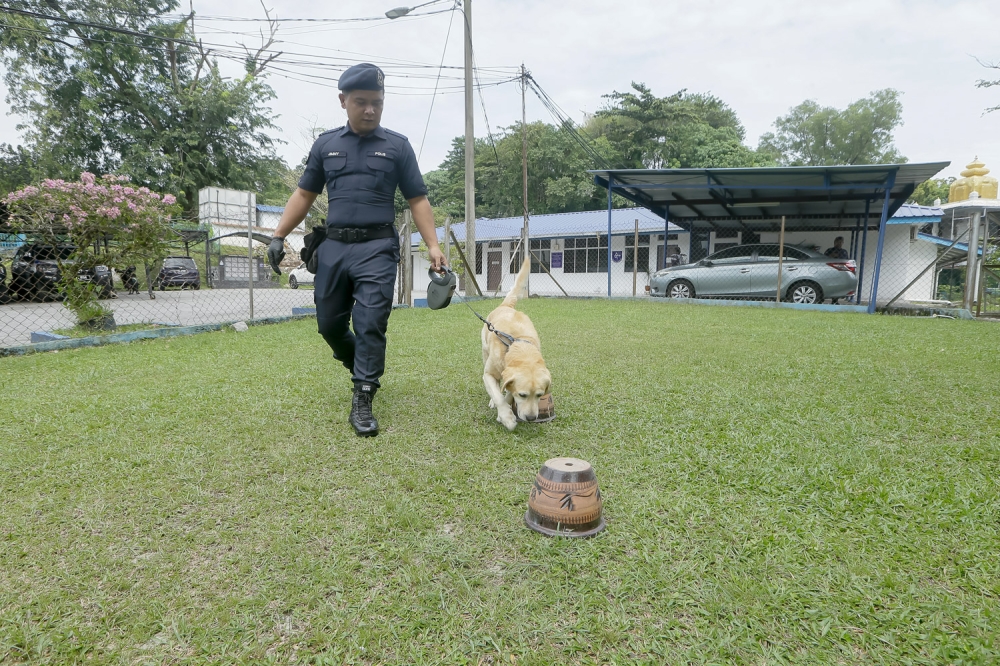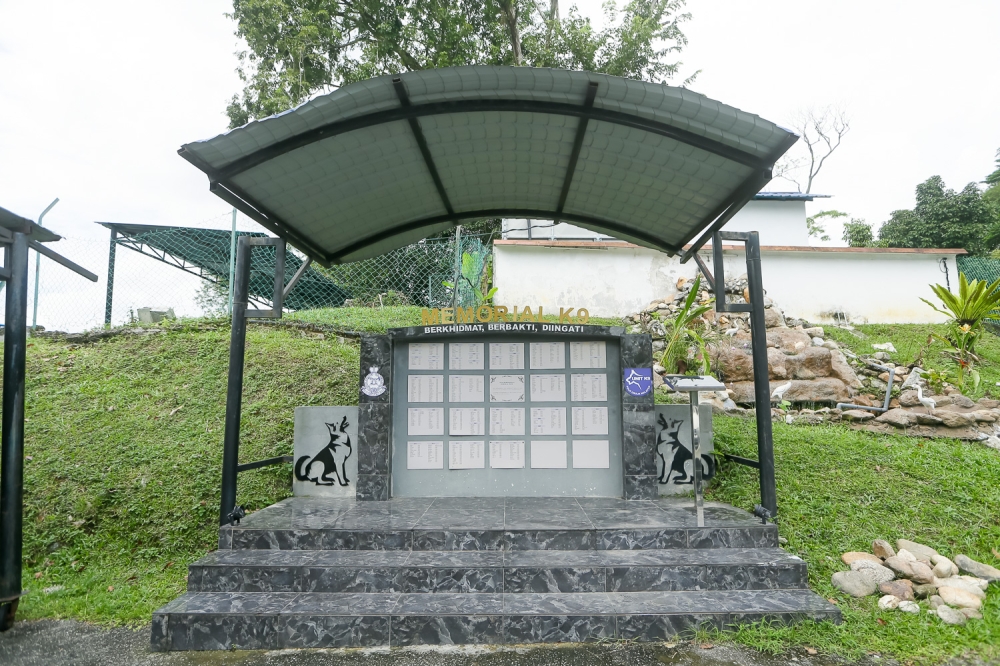- Malaysia’s K9 Unit dogs are retired as early as eight years old based on health evaluations, with stringent medical care and humane treatment prioritised, including euthanasia only as a last resort.
- Retired dogs remain in the K9 Unit kennels, receiving round-the-clock care as treasured members of law enforcement, despite not holding formal ranks.
- PDRM urgently needs more dogs, requiring 95 replacements for retired or unwell canines, with plans to acquire 25 new ones every two years to meet increasing demands.
KUALA LUMPUR, Jan 12 — Malaysia’s K9 Unit dogs are essential partners in law enforcement, working tirelessly alongside their human handlers to detect drugs, track suspects, and even protect their teams.
However, as these highly trained animals age or sustain injuries, the time inevitably comes when they can no longer serve. So, what happens to them once they retire from active duty?
“These boys are that much to us, and it is very hard to put the ones who are ill down,” Assistant Deputy Director of Technical Assistance Division (D6), Criminal Investigation Department, ACP Zuraimi Zam Zam told Malay Mail in an interview at Bukit Aman here.
Zuraimi insisted that utmost care is given to each K9 Unit member, with euthanasia only as an absolute last resort — when the dog is nearly vegetative.

Retirement can begin as early as eight
Zuraimi said that the retirement age starts at eight based on the veterinarian’s advice, but this is not fixed and depends on each individual dog’s fitness and health levels.
“The health of the dog is a critical factor. If the dog has a chronic condition or issues such as heart or hip problems, the veterinarian will assess their condition.
“We will then review the findings and, based on this, we may decide to retire the dog, even if they are only six or seven years old,” Zuraimi said.
He explained that by the time the canines reach nine or 10-years-old, they are typically retired, as their performance may decline over time, making them slower on field duties.
The dogs are given meticulous care, Zuraimi said, which also includes monthly check-ups that consist of blood tests.
“So in cases of emergency when our dogs are ill, we go to the veterinary hospital in Universiti Putra Malaysia, but if anything untoward happens after office hours, we have our assigned private panel clinics for immediate care,” Zuraimi said.
Unwell canines receive medical care, followed by recovery in the K9 Unit kennels with round-the-clock attention. As government assets, they remain in the unit for security reasons and cannot be taken home by their handlers.

Do police dogs have ranks?
Although these exceptional dogs form an elite unit, they serve in their capacity without any police ranks.
“Imagine their handlers, police corporals, and the canines being sergeants? That’s quite a mismatch, and it would be really awkward!” Zuraimi said, laughing.
“That’s a joke among us, but honestly, it would create difficulties, so our canines don’t have ranks. They all share one big rank: very good boys!”
However, the dogs are recognised and categorised according to their specialities, including: crime, narcotics detection, cadaver detection, bomb and weapons detection, electronic storage device (ESD) detection, and mantrailing to locate missing persons or suspects wanted for investigations.
Once they retire, they will stay in their own kennel in the K9 Unit, where they are given all the love, care and affection they deserve.
“Here, the term put-to-sleep or PTS is something that is abhorred. Our canines are very treasured and each one leaves a footprint when they come, and go when their time is up,” he explained.
Zuraimi said stringent medical check-ups are done and veterinarian doctors are consulted once a canine is found to be completely unable to function.
“It is the very, very, very last decision and that too if nothing more can be done,” he added.

Not enough canines
Zuraimi said more canines are needed, especially for border control efforts.
“We lack a lot more dogs. Many of our borders do not have dogs, and adding to this is the increase in criminal activities, which are getting more sophisticated with technology,” he said.
He stated that PDRM currently require around 95 dogs to replace those that have retired, become ill, or passed away.
To address this, Zuraimi hopes to get 25 new canines every two years, both to replace retired dogs and to improve efficiency.
“Dogs are living creatures, and we need to treat them with the same respect we give to humans. Before I joined the K9 Unit, I saw them as just animals, but they give so much of their lives to us,” Zuraimi related.
“It’s truly disheartening when they grow old, when they are sick and lying in their kennels. Throughout their lives, they have served as cops, and until their last breath, they carry that honour and identity with them.
“So regardless whether a dog is a stray or is in active service, be kind. Don’t hurt them,” he suggested.



















